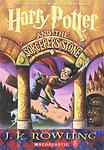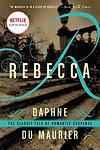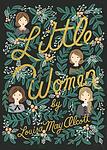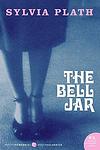#ThisBook
This is one of the 284 lists we use to generate our main The Greatest Books list.
-
To Kill a Mockingbird by Harper Lee
Set in the racially charged South during the Depression, the novel follows a young girl and her older brother as they navigate their small town's societal norms and prejudices. Their father, a lawyer, is appointed to defend a black man falsely accused of raping a white woman, forcing the children to confront the harsh realities of racism and injustice. The story explores themes of morality, innocence, and the loss of innocence through the eyes of the young protagonists.
-
The Handmaid's Tale by Margaret Atwood
Set in a dystopian future, this novel presents a society where women are stripped of their rights and are classified into various roles based on their fertility and societal status. The protagonist is a handmaid, a class of women used solely for their reproductive capabilities by the ruling class. The story is a chilling exploration of the extreme end of misogyny, where women are reduced to their biological functions, and a critique of religious fundamentalism.
-
Jane Eyre by Charlotte Bronte
The novel follows the life of Jane Eyre, an orphan who is mistreated by her relatives and sent to a charity school. As she grows up, Jane becomes a governess at Thornfield Hall, where she falls in love with the brooding and mysterious Mr. Rochester. However, she soon learns of a dark secret in his past that threatens their future together. The story is a profound exploration of a woman's self-discovery and her struggle for independence and love in a rigid Victorian society.
-
Harry Potter And The Philosopher's Stone by J. K Rowling
The story follows a young boy, Harry Potter, who learns on his 11th birthday that he is the orphaned son of two powerful wizards and possesses unique magical powers of his own. He is summoned from his life as an unwanted child to become a student at Hogwarts, an English boarding school for wizards. There, he meets several friends who become his closest allies and help him discover the truth about his parents' mysterious deaths, the dark wizard who wants to kill him, and the magical stone that holds immense power.
-
Wuthering Heights by Emily Brontë
This classic novel is a tale of love, revenge and social class set in the Yorkshire moors. It revolves around the intense, complex relationship between Catherine Earnshaw and Heathcliff, an orphan adopted by Catherine's father. Despite their deep affection for each other, Catherine marries Edgar Linton, a wealthy neighbor, leading Heathcliff to seek revenge on the two families. The story unfolds over two generations, reflecting the consequences of their choices and the destructive power of obsessive love.
-
Pride and Prejudice by Jane Austen
Set in early 19th-century England, this classic novel revolves around the lives of the Bennet family, particularly the five unmarried daughters. The narrative explores themes of manners, upbringing, morality, education, and marriage within the society of the landed gentry. It follows the romantic entanglements of Elizabeth Bennet, the second eldest daughter, who is intelligent, lively, and quick-witted, and her tumultuous relationship with the proud, wealthy, and seemingly aloof Mr. Darcy. Their story unfolds as they navigate societal expectations, personal misunderstandings, and their own pride and prejudice.
-
Rebecca by Daphne du Maurier
A young woman marries a wealthy widower and moves into his large English country house. She quickly realizes that the memory of her husband's first wife, Rebecca, haunts every corner of the estate. The housekeeper's obsessive devotion to Rebecca and the mysterious circumstances of her death continue to overshadow the second wife's attempts to make a happy life with her husband. As secrets about Rebecca's life and death are revealed, the new wife must grapple with her own identity and place within the household.
-
Little Women by Louisa May Alcott
This classic novel follows the lives of the four March sisters - Meg, Jo, Beth, and Amy - as they navigate the challenges and joys of adolescence and adulthood in 19th century New England. As they grow, they grapple with issues of poverty, gender roles, love, and personal identity, each in her own unique way. The story is a testament to the power of family, sisterhood, and female resilience in a time of societal constraints.
-
The Secret History by Donna Tartt
A group of six classics students at a small, elite Vermont college, led by a charismatic professor, become entranced by the study of Greek culture and decide to recreate a Dionysian ritual, which ends in a tragic accident. The group, bound by their shared secret, begins to unravel as paranoia and guilt take hold. The novel explores themes of beauty and terror, the allure of the esoteric, and the destructive consequences of obsession.
-
I Capture the Castle by Dodie Smith
"I Capture the Castle" is a coming-of-age novel that tells the story of 17-year-old Cassandra Mortmain and her eccentric family living in a dilapidated English castle during the 1930s. Cassandra's father is a reclusive writer suffering from writer's block and her stepmother is a bohemian artist. The family's life changes dramatically when two American brothers inherit the estate. The novel, written in diary format, explores themes of love, poverty, and the transition from adolescence to adulthood.
-
The Bell Jar by Sylvia Plath
The novel follows the story of a young woman who wins a guest editorship at a magazine in New York City and, after a series of personal and professional disappointments, suffers a mental breakdown and returns to her family, where she continues to struggle with depression and suicidal thoughts. The protagonist's experiences in psychiatric institutions and her attempts to reclaim her life are depicted with brutal honesty, making it a poignant exploration of mental illness and the societal pressures faced by women in the mid-20th century.
-
Beloved by Toni Morrison
This novel tells the story of a former African-American slave woman who, after escaping to Ohio, is haunted by the ghost of her deceased daughter. The protagonist is forced to confront her repressed memories and the horrific realities of her past, including the desperate act she committed to protect her children from a life of slavery. The narrative is a poignant exploration of the physical, emotional, and psychological scars inflicted by the institution of slavery, and the struggle for identity and self-acceptance in its aftermath.
-
Gone With the Wind by Margaret Mitchell
Set against the backdrop of the American Civil War and Reconstruction era, this novel follows the life of a young Southern belle, who is known for her beauty and charm. Her life takes a turn when she is forced to make drastic changes to survive the war and its aftermath. The story revolves around her struggle to maintain her family's plantation and her complicated love life, especially her unrequited love for a married man, and her tumultuous relationship with a roguish blockade runner.
-
We Need To Talk About Kevin by Lionel Shriver
"We Need To Talk About Kevin" is a gripping and unsettling novel that explores the complex relationship between a mother and her troubled son. Told through a series of letters written by the mother to her estranged husband, the book delves into the aftermath of a horrific school massacre committed by Kevin. As the mother reflects on her own guilt, fears, and doubts, she questions whether her own actions and choices played a role in shaping Kevin's violent nature. This thought-provoking and chilling narrative explores themes of nature versus nurture, parental responsibility, and the profound impact of tragedy on a family.
-
The Time Traveler's Wife by Audrey Niffenegger
The novel tells the story of a man with a genetic disorder that causes him to time travel unpredictably, and his wife, an artist who has to cope with his frequent absences and dangerous experiences. Their love story endures many separations and dangerous experiences due to his condition. The story's central theme is the effects of time travel on their marriage and their passionate love for each other.
-
Middlemarch by George Eliot
Set in the fictitious English town of Middlemarch during the early 19th century, the novel explores the complex web of relationships in a close-knit society. It follows the lives of several characters, primarily Dorothea Brooke, a young woman of idealistic fervor, and Tertius Lydgate, an ambitious young doctor, who both grapple with societal expectations, personal desires, and moral dilemmas. Their stories intertwine with a rich tapestry of other townsfolk, reflecting themes of love, marriage, ambition, and reform, making a profound commentary on the human condition.
-
I Know Why the Caged Bird Sings by Maya Angelou
This memoir recounts the early years of an African-American girl's life, focusing on her experiences with racism and trauma in the South during the 1930s. Despite the hardships she faces, including sexual abuse, she learns to rise above her circumstances through strength of character and a love of literature. Her journey from victim to survivor and her transformation into a young woman who respects herself is a testament to the human capacity to overcome adversity.
-
The Golden Notebook by Doris Lessing
The novel centers around a woman named Anna Wulf, a writer who keeps four notebooks, each representing a different aspect of her life: her experiences in Africa, her current life in London, a novel she is writing, and her personal experiences. As Anna's mental state deteriorates, she attempts to unify her fragmented self in a fifth notebook, the golden notebook. The novel explores themes of mental breakdown, communism, the changing role of women, and the fear of nuclear war.
-
The Color Purple by Alice Walker
Set in the early 20th century, the novel is an epistolary tale of a young African-American woman named Celie, living in the South. She faces constant abuse and hardship, first from her father and then from her husband. The story unfolds through her letters written to God and her sister Nettie, revealing her emotional journey from oppression to self-discovery and independence, aided by her relationships with strong women around her. The narrative explores themes of racism, sexism, domestic violence, and the power of sisterhood and love.
-
The Women's Room by Marilyn French
"The Women's Room" is a groundbreaking novel that explores the journey of a suburban housewife from a traditional, oppressive marriage to an awakening of self-discovery and feminism. After her divorce, the protagonist goes back to school, where she encounters a group of independent, intellectually stimulating women who challenge the societal norms of the time. The novel provides a stark portrayal of the struggles faced by women in the 1950s and 1960s, highlighting the need for gender equality and women's rights.
#ThisBook, 20 Books
Back in May 2014, the Baileys Women's Prize for Fiction launched the #ThisBook campaign. The aim was simple: to find out which books, written by women, have had the biggest impact on readers.
Added 7 months ago.
This list has a weight of 36%. To learn more about what this means please visit the Rankings page.
Here is a list of what is decreasing the importance of this list:
- Voters: not critics, authors, or experts
- List: only covers 1 specific gender
- List: criteria is not just "best/favorite"
If you think this is incorrect please e-mail us at [email protected].



















